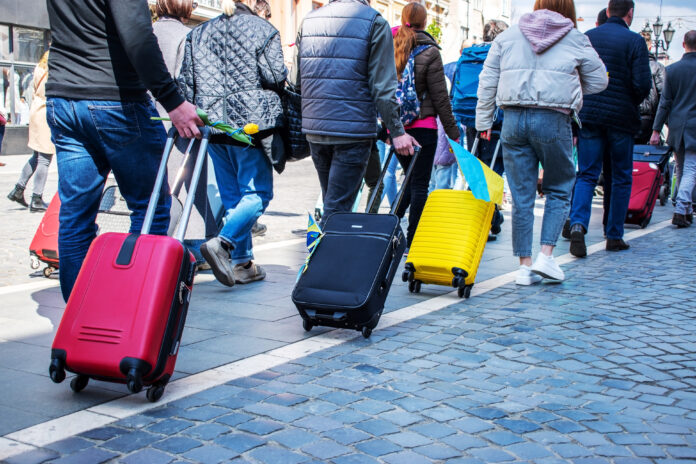
Canada immigration news: Immigration Minister Sean Fraser says three planeloads of Ukrainian refugees are going to be flown to Manitoba, Quebec, and Nova Scotia in May and June under the Canada-Ukraine Authorization for Emergency Travel (CUAET).
“Canada is doing everything it can to support Ukrainians before and after they arrive in Canada,” said Fraser.
“Millions of Ukrainians have been displaced and forced to flee their homes, and these charter flights will help make sure that those who want to come to Canada have the support they need. We’ll continue to work with provinces and territories, settlement organizations and NGOs to make sure Ukrainians feel at home in their new communities.”
Read More Canada Immigration News
Flood Of Temporary Visa Approvals Through Canada-Ukraine Authorization for Emergency Travel
All You Need To Know About The Canada-Ukraine Authorization For Emergency Travel
Canada Opens Applications for Ukraine Emergency Travel Pathway
The three chartered flights for people approved under the CUAET will take off from Poland. The first is scheduled to land in Winnipeg on May 23, the second in Montreal on May 29, and the third in Halifax on June 2.
Canadians Can Donate Points To Fund Flights For Ukrainians
Immigration, Refugees and Citizenship Canada (IRCC) is providing up to 14 nights of accommodations for any of these refugees who do not already have a place to stay in Canada.
Through the Ukraine2Canada Travel Fund at least 10,000 free flights are expected to be made available for refugees fleeing the Russia-Ukraine war.
Canadians can donate their Aeroplan points through the Air Canada Foundation Ukrainian Relief Fund and Miles4Migrants websites to help cover the cost of flights for Ukrainian refugees. Canadians who would like to donate cash can do so through the Travel & Settlement Fund at the Jewish Foundation of Greater Toronto which will distribute these donations to sponsor displaced Ukrainians.
On May 4, more than 204,000 CUAET applications had been submitted and roughly 91,500 applications had been approved. Ottawa has said Canada will accept an unlimited number of Ukrainian refugees under the CUAET.
Watch Video
That compares to only 20,010 new permanent residents who came to Canada as refugees in 2021.
The flood of Ukrainians approved under the CUAET this year is already more than 10 times the 9,230 new permanent residents to Canada under refugee programs in 2020 and more than three times higher than the 30,070 new permanent residents under refugee programs in 2019, the last full year before the COVID-19 global pandemic.
The new arrivals to Canada from Ukraine are coming under temporary visas which can last up to three years and are not permanent residents.
But, once in Canada, those Ukrainian refugees will certainly be able to apply for permanent residency and any work experience they gain or studying they do while in the country will only enhance their Comprehensive Ranking System (CRS) scores should they decide to complete Express Entry profiles and apply for permanent residency.
Asian Countries Biggest Sources Of New Canada Permanent Residents
The allegations of racism in Canada’s immigration practices, however, sound hollow because the biggest sources of new permanent residents to Canada are not primarily-Caucasian countries.
The biggest sources of new permanent residents to Canada are China, India, and the Philippines which together accounted for a third of all new permanent residents to Canada last year. The fourth-biggest source of a new permanent residents to Canada in 2021 was Nigeria.
In March, Canada extended its settlement services with new programs specifically tailored for Ukrainian refugees that are being offered until the end of March next year, including:
- language training;
- information about and orientation to life in Canada, such as help with enrolling children in school;
- information and services to help access the labour market, including mentoring, networking, counselling, skills development and training
- activities that promote connections with communities;
- assessments of other needs Ukrainians may have and referrals to appropriate agencies;
- services targeted to the needs of women, seniors, youth and LGBTQ2+ people, and;
- other settlement supports are funded through the settlement program.
Russian President Vladimir Putin declared war on Ukraine on Feb. 24 and quickly struck the country with a full military onslaught. The early video showed the full extent of the devastation as nothing seemed to be spared the Russian air missile attacks, not even maternity wards and civilians.

